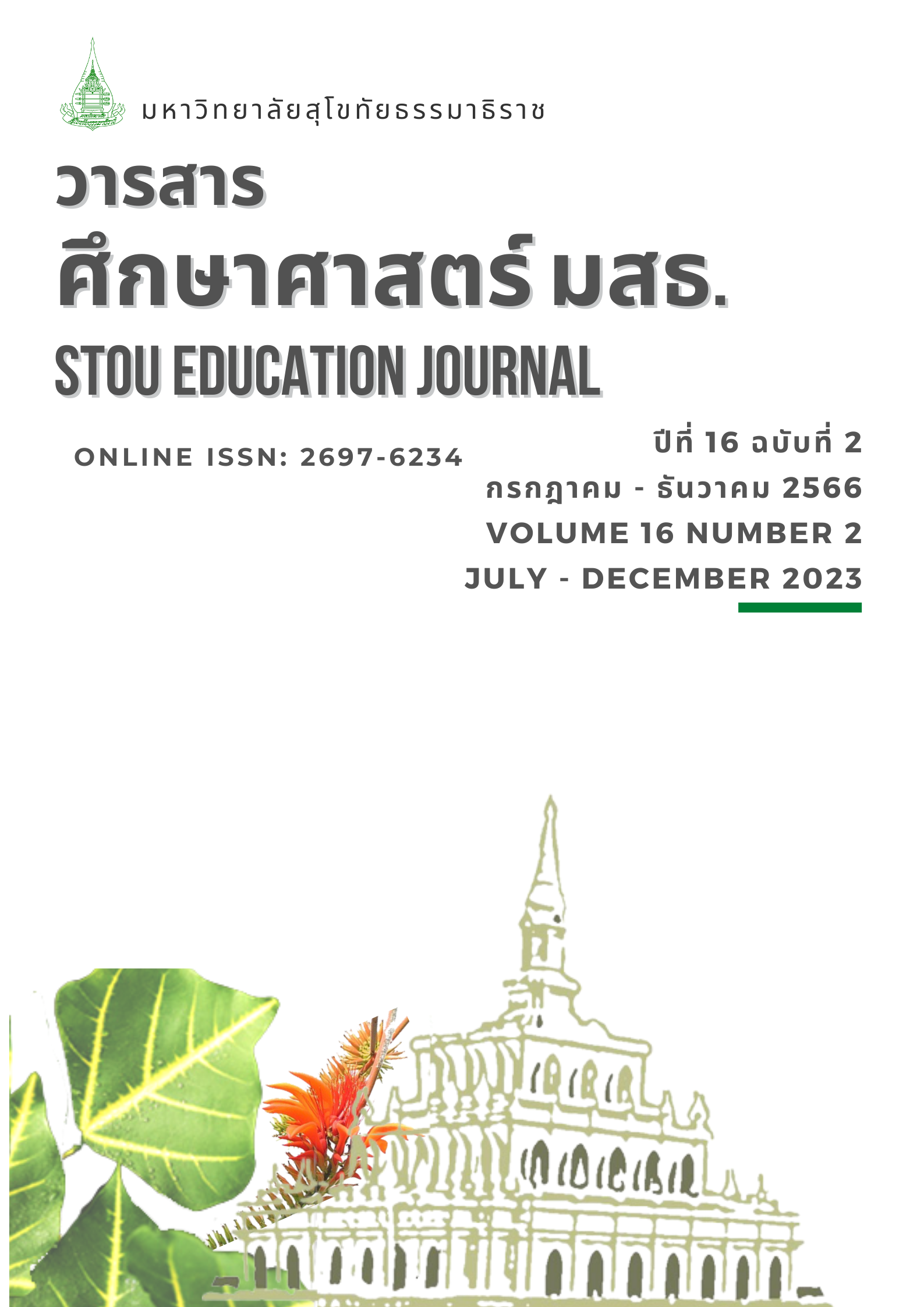The Research of Follow-up and Assessment of Learner Characteristics According to the Desirable Outcomes of National Education Standards
Main Article Content
Abstract
The objectives of this research were (1) to assess learner characteristics; (2) to study the conditions of administration and management of educational institutions to develop learner characteristics, and (3) to propose educational management guidelines to achieve desirable outcomes based on the National Education Standards, B.E. 2561. This study was mixed-method research. The research sample of this study consisted of 4,400 questionnaire respondents classified into school administrators, teachers/instructors, school board members, parents and students. Also, the key research informants were 143 persons who participated in focus group discussion. The research tools used to collect quantitative data were 26 questionnaires and 17 question guidelines for focus group discussion. Data were analyzed by mean, standard deviation and content analysis. The research results showed that (1) in overall, characteristics of learners according to the desired outcome framework at all educational levels were rated at the high level; (2) regarding the administration and management conditions of educational institutions to develop learner characteristics, it was found that at all levels there were the actions aiming to achieve the desirable outcomes specified in the national educational standards.(3) educational management guidelines to obtain desirable outcomes based on the National Education Standards, B.E. 2561 for all levels of education were as follows: (3.1) the policy should be communicated and conveyed to all educational institutions; (3.2) the school curriculum should be improved to become the competency-based curriculum; (3.3)should focus on active learning; (3.4) should focus on the participation of the community, society and enterprises; (3.5) should emphasis on authentic assessment; (3.6) the problem of insufficient teachers should be solved; (3.7) the resources should be allocated and managed to ensure equal quality of all types of educational institutions; (3.8) the participation of all sectors should be promoted.; and (3.9) the educational quality assurance system and educational supervision should be integrated to conform and promote the implementation of national educational standards.
Article Details
References
ชูชาติ พ่วงสมจิตร์, เก็จกนก เอื้อวงศ์, กุลชลี จงเจริญ, นงเยาว์ อุทุมพร, และ ฐิติกรณ์ ยาวิไชย จารึกศิลป์ (2565). ร่าง
รายงานการวิจัยติดตามและประเมินคุณลักษณะผู้เรียนตามกรอบผลลัพธ์ที่พึงประสงค์ของการศึกษาตาม
มาตรฐานการศึกษาของชาติ. สำนักงานเลขาธิการสภาการศึกษา. (เอกสารอัดสำเนา).
สำนักงานเลขาธิการสภาการศึกษา. (2548). มาตรฐานการศึกษาของชาติ. 21 เซ็นจูรี่.
สำนักงานเลขาธิการสภาการศึกษา. (2560). แผนการศึกษาแห่งชาติ พ.ศ. 2560–2579. พริกหวานกราฟฟิค.
สำนักงานเลขาธิการสภาการศึกษา. (2561). มาตรฐานการศึกษาของชาติ พ.ศ. 2561. 21 เซ็นจูรี่.
สำนักงานเลขาธิการสภาการศึกษา. (2562). รายงานผลการขับเคลื่อนมาตรฐานการศึกษาของชาติ ประจำปี 2562.
เซ็นจูรี่.
สำนักงานเลขาธิการสภาการศึกษา. (2563ก). แนวทางการนำมาตรฐานการศึกษาของชาติสู่การปฏิบัติสำหรับ
ประเทศไทย. 21 เซ็นจูรี่.
สำนักงานเลขาธิการสภาการศึกษา. (2563ข). รายงานผลการวิจัยแนวทางการนำมาตรฐานการศึกษาของชาติสู่การ
ปฏิบัติ. สำนักมาตรฐานการศึกษาและพัฒนาการเรียนรู้ สำนักงานเลขาธิการสภาการศึกษา.


